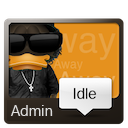GCC - GNU Compiler Collection
- GNU Compiler Collection
- History of GCC
- Four Stages of GCC
- Warnings and Extensions
- Optimization
- Linking
Building Software with Make
- Introducing make(1)
- How make Works
- Special Targets
- Defining Useful Phony Targets
Building Libraries
- Why Use Libraries?
- Static Versus Shared
- Library Locations
- ldconfig
Process Management
- Related execve() Functions
- Real Time Priority
Memory Operations
- Allocating/Freeing Memory
- Memory Alignment
- Locked Memory
|
Debugging
- Invoking gdb
- Using gdb to Autopsy a Crash
Basic File Operations
- Opening/Closing Streams
- Stream Input/Output Functions
- Stream Status/Errors
- cat using ANSI I/O
- cat using POSIX I/O
Communicating with Pipes
- Standard I/O: popen()/pclose()
- System Call: pipe()
- Using pipe()
Advanced File Operations
- Directory Operations
- Using Memory Mapped I/O
- File Locking
Interprocess Communication (IPC)
- Interprocess Communication (IPC)
- POSIX Shared Memory
Working with the Linux Community
- Licenses
- GPL
- LGPL
- BSD
|











